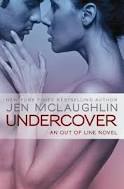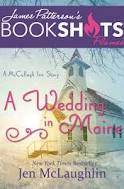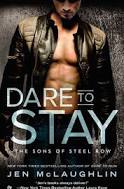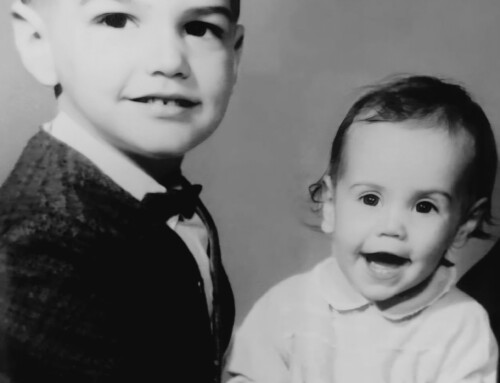Since I dread being asked, “So what’s your book about?” and am god-awful at answering that question, I invited an expert–best-selling author Jen McLaughlin–to share her secrets with us. Thanks, Jen! — DH
Jen McLaughlin, “Pitching Your Book 101”
Pitching your book to someone else in hopes of publication can be scarier than taking on a genetically mutated, long armed T-Rex while blindfolded with your hands tied behind your back in a Hunger Games arena. When you’re up against something with jagged, deadly teeth, it’s a little hard to feel a little bit like a prey animal…but it doesn’t have to be like that. Believe it or not, whoever you are pitching your book to wants to love your story. They’re as excited about the possibilities as you are, so when you walk up to that table or office and get ready to pour your heart into their extended, cupped hands…here’s some tips to help ease the nerves.
genetically mutated, long armed T-Rex while blindfolded with your hands tied behind your back in a Hunger Games arena. When you’re up against something with jagged, deadly teeth, it’s a little hard to feel a little bit like a prey animal…but it doesn’t have to be like that. Believe it or not, whoever you are pitching your book to wants to love your story. They’re as excited about the possibilities as you are, so when you walk up to that table or office and get ready to pour your heart into their extended, cupped hands…here’s some tips to help ease the nerves.
Be engaging
Enthusiasm is as catching as yawns in a Monday morning eight AM class. If you walk in the room looking as if you’re about to pitch the worst idea ever, you are muddying the waters before you even speak. When you speak about your project, a book that you’ve spent countless  hours writing, examining every single word and comma, and still somehow managing to pull it off without throwing the whole computer out of the window…show that excitement in your words and your pitch!
hours writing, examining every single word and comma, and still somehow managing to pull it off without throwing the whole computer out of the window…show that excitement in your words and your pitch!
Speaking of muddying waters…
Don’t do it! If you start out with “I’m new but I think this is kind of sort of okay” or “I’ve never written before, so it’s probably awful, but let me tell you about it anyway” you’re being your own worst enemy. If you’re not confident in your ability to write yet, well, fake it. If you’re unpublished, no need to state it out loud. The non-mentioning of being a published New York Times bestselling author is more than enough—and that’s okay. Being experienced and published with credentials and degrees is no guarantee that you’re going to get another deal. Being new isn’t a bad thing—own it, embrace it, and show you’re in this for the long haul!
Be casual (but professional)
Don’t be afraid to smile and laugh. You’re selling your book, but you’re also showing your personality and your willingness and ability to work with others. People want to work with peers who are energetic, enthusiastic, and positive. Don’t be so stiff that you could be a stock character. Smile, laugh, learn about the person across the table from you, and most of all—engage. That being said, keep it professional while being engaging. Think of it as a job interview: you want to show you’re easy to work with, knowledgeable, and kind…but you’re not exactly going to swagger in, fling yourself into a seat, slouch, and say, “Sup, man?”
personality and your willingness and ability to work with others. People want to work with peers who are energetic, enthusiastic, and positive. Don’t be so stiff that you could be a stock character. Smile, laugh, learn about the person across the table from you, and most of all—engage. That being said, keep it professional while being engaging. Think of it as a job interview: you want to show you’re easy to work with, knowledgeable, and kind…but you’re not exactly going to swagger in, fling yourself into a seat, slouch, and say, “Sup, man?”
Have an elevator pitch
Every author has four words that they dread: “What’s your book about?” It’s human nature to freeze up when someone asks us this. How can we possibly fit our amazing story into one line such as “A princess has to save an enemy merman prince’s life, and in the process finds out that her whole world was a lie pitched to her by her parents who needed her to hate him” and do it justice? Well, that’s how you do it. Have a strong overall line, and then dive into details such as, “This is a middle-grade fantasy book that plays with themes of hatred, prejudice, independence, and a grand adventure with mermen, kidnapping, sword fights, and a twelve-year-old headstrong princess at the heart of it all…” Does it cover EVERYTHING? Nope. But it shows you know what your book is about, who the audience is, and what the themes are. Once you lay out the bare bones, let the person you’re pitching to ask questions.
What’s an elevator pitch?
 An elevator pitch is the idea that an author can, in theory, deliver in the space of an elevator ride. The concept centers around you finding yourself in the elevator with an agent who against all odds asks those four words we spoke about earlier: “What’s your book about?” Obviously, the chances of this happening and you having an agent or editor trapped in an elevator with you for thirty seconds are pretty slim, but the theory still stands today. To pitch, one must have that twenty second description bursting at the seams and ready to be released.
An elevator pitch is the idea that an author can, in theory, deliver in the space of an elevator ride. The concept centers around you finding yourself in the elevator with an agent who against all odds asks those four words we spoke about earlier: “What’s your book about?” Obviously, the chances of this happening and you having an agent or editor trapped in an elevator with you for thirty seconds are pretty slim, but the theory still stands today. To pitch, one must have that twenty second description bursting at the seams and ready to be released.
Fine. How do I write one?
- Try to make it be 20-30 words (or less!).
- Be enthusiastic and confident. This is your story—own it!
- Make it memorable – “The ghost of a teenage girl must discover who killed her before she runs out of time to accept her offer into one-time offer into heaven” or “A teenager is forced to enter a fight to the death to save her sister, and becomes a symbol of freedom in a war she didn’t ask for.”
- Your pitch should leave the listener asking for more. It should be unique, engaging, compelling, and intriguing. The best response you can possibly get is: “Tell me more!”
If you have publication or education creds, mention them briefly
The key word being briefly! If you spend your whole pitch talking about yourself, you missed the opportunity to hook them into your story. Instead, focus on your 20-30 word pitch, and at the end you can add a line such as “I have over fifty books published, some of which have hit the New York Times, and an MFA in Creative Writing.” That’s literally the absolute most you should mention, as you’re not selling yourself so much as you’re selling your amazing idea that you took from blank screen with a blinking cursor and turned into a real life, living, breathing (yes, books breathe!) story that has the potential of being their next investment. You are just the footnote to the tale, and again? That’s okay.
Above all, don’t lose hope
Stephen King threw Carrie in the trash after receiving too many rejections, and now he’s one of the most recognizable names out there. Writing comes part and parcel with rejection, but it’s not the end of your writing career if a book doesn’t sell. Dust off that burden on your back, roll your shoulders, open up that computer, and glare at the blinking cursor. After a moment of reflection, rest your fingers on those keys that you can feel against your fingertips even as I type this, nod your head, and get back to it. Writers don’t have the luxury of giving up. We just keep on going, telling the world our stories, and hope for the best…
Kind of like our characters.
About Jen:
Jen McLaughlin is the New York Times, USA Today, and Wall Street Journal bestselling author who was mentioned in Forbes alongside E. L. James as one of the breakout independent authors to dominate the bestselling lists. Under her pen name Diane Alberts, she is a multi-published, bestselling author of Contemporary Romance. She is also published as Jen McLaughlin by Penguin/Berkley and Random House and has written 3 books for James Patterson/Hachette. A firm believer in chasing your dreams, Jen went back to school for her MFA when her daughter started college and is now a college professor. She also works as an assistant in the Honors Program while also teaching Creative Writing at the University level and is currently pursuing her Doctorate of Education. Jen lives in Pennsylvania with her husband, four kids, one dog, and five cats. You can visit her site at https://jenmclaughlin-dianealberts.com.
![]()






Leave A Comment